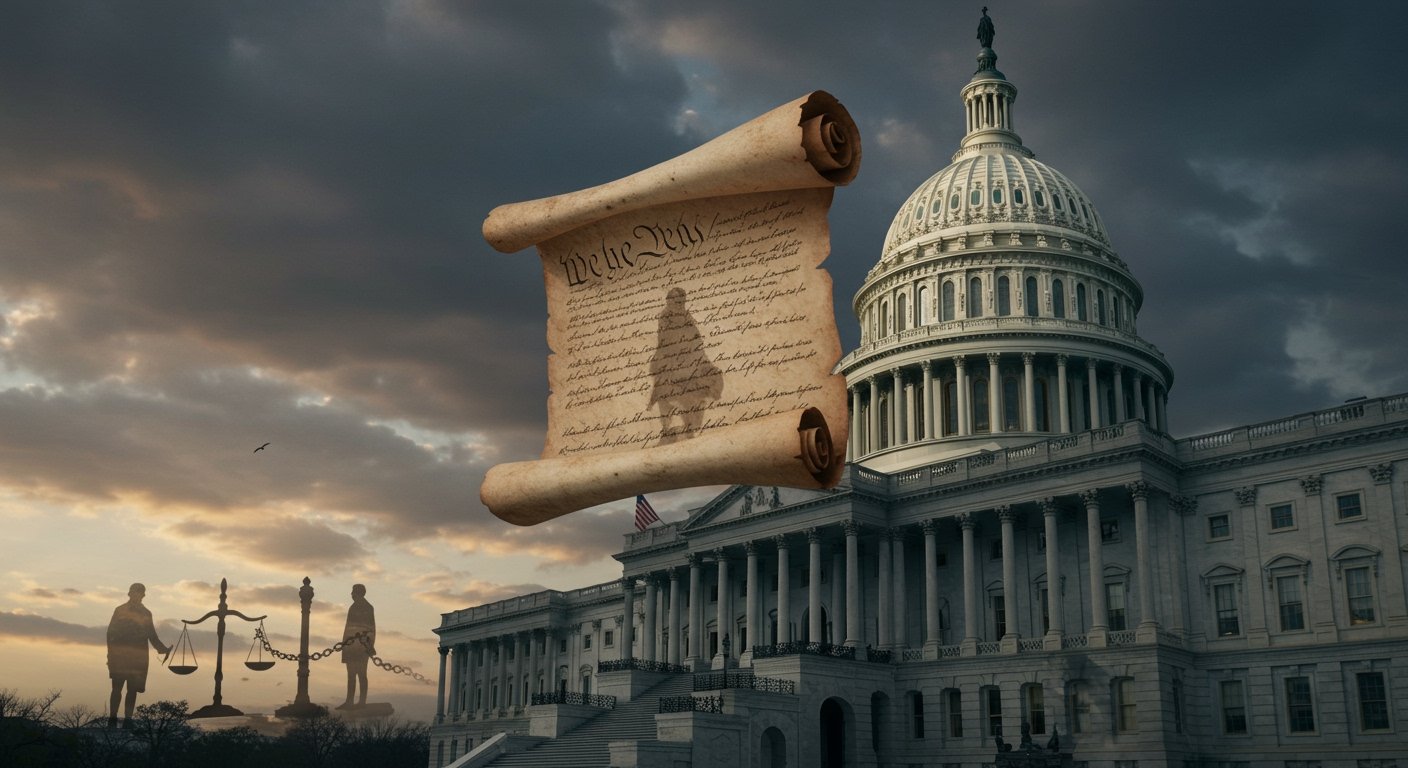A recent editorial published on July 5, 2025, by the AIM Media Texas Editorial Board has sparked significant reflection, drawing potent parallels between actions of the contemporary U.S. government and the catalogue of grievances meticulously detailed against the British monarchy in the Declaration of Independence. The piece serves as a challenging post-Independence Day meditation, urging readers to consider whether the very governmental overreach the American Revolution sought to escape is now manifesting within the United States itself.
The Declaration’s Catalogue of Complaints
The Declaration of Independence, a foundational document of the United States, did not merely declare separation; it articulated a specific, lengthy indictment against King George III and British rule. This list of injustices served as the moral and legal justification for the rebellion. The AIM Media Texas editorial revisits this historical list, presenting it as a yardstick against which to measure contemporary governmental practices.
The grievances enumerated in 1776 included, among others, the transporting of large armies of foreign mercenaries, exciting domestic insurrections amongst the populace, obstructing laws for the naturalization of foreigners and refusing to pass others to encourage their migration, hindering the administration of justice by refusing his assent to laws for establishing judiciary powers, making judges dependent on his will alone for the tenure of their offices and the amount and payment of their salaries, quartering large bodies of armed troops among the populace, protecting those troops by a mock trial from punishment for murders committed upon the inhabitants, cutting off trade with all parts of the world, imposing taxes without consent, and in many cases, depriving the populace of the benefits of trial by jury.
Contemporary Parallels Examined
The core of the AIM Media Texas editorial lies in its implicit, yet pointed, questioning of how many of these historical “sins,” once attributed to a distant monarch, bear resemblance to actions undertaken by the present U.S. government. The editorial board prompts readers to consider whether modern policies or practices echo the historical complaints.
For instance, the piece implicitly questions whether contemporary governmental actions could be seen as analogous to the transporting of large armies of foreign mercenaries. It asks if recent events or policies might parallel the charge of exciting domestic insurrections. The editorial also raises questions about whether current laws or administrative practices could be perceived as obstructing naturalization and migration laws, reminiscent of the King’s actions in hindering the growth of colonies through immigration.
Further points of comparison highlighted by the editorial include whether the administration of justice is being hindered, perhaps through interference or underfunding of judicial processes. It probes whether there are contemporary instances that make judges dependent on the executive will, potentially undermining judicial independence – a key concern for the Founding Fathers.
The difficult issue of quartering troops is also brought up, prompting reflection on modern scenarios involving the deployment and housing of armed personnel. The editorial asks if there are situations where governmental protection of certain actors through processes that amount to mock trials mirrors the historical grievance regarding soldiers escaping justice for crimes committed against civilians.
The piece challenges readers to consider if contemporary trade policies could be seen as cutting off trade in ways that disadvantage or restrict economic activity, drawing a parallel to the historical imposition of restrictions on colonial commerce. Perhaps most resonant for many, the editorial questions whether the government is imposing taxes without consent – a direct challenge to the principle of “no taxation without representation” – or whether it is denying trial by jury in certain contexts, undermining a fundamental legal right.
A Question of Governance
The AIM Media Texas Editorial Board’s piece, published just after the nation celebrated its independence, serves as a stark reminder of the principles upon which the United States was founded. By juxtaposing the historical grievances against King George III with contemporary governmental actions, the editorial implicitly critiques the direction of modern governance and challenges the public to assess whether the spirit of the Revolution is being upheld.
The editorial does not explicitly state that the U.S. government is identical to the British monarchy of 1776, but rather uses the Declaration’s specific complaints as a powerful framework for questioning current practices. It forces a difficult but necessary conversation about governmental power, individual liberties, and the enduring relevance of the Declaration of Independence in evaluating the state of the nation’s governance. The piece ultimately leaves the reader to ponder the profound question: have we, in our evolution as a nation, inadvertently adopted characteristics of the very system we rebelled against?






